A Selection of Water-Related Societies and Partners that have Chosen to Publish with Springer
Springer, the largest eBook publisher in Science, Technology, and Medicine (STM), offers in close cooperation a variety of book co-publishing partnership models, from eBook distribution to full production, distribution, and marketing partnerships for both eBooks and print. Furthermore, the societies and partners below and hundreds more trust Springer to advance their journal’s success. Let us do the same for you.
@QUA
@qua, a Thematic Network under the European Comission’s CIP-ICT PSP Program
Calouste Gulbekian Foundation
The Calouste Gulbenkian Foundation is a Portuguese private institution of public utility whose statutory aims are in the fields of arts, charity, education and science. Created by a clause in Calouste Sarkis Gulbenkian's will, the Foundation's statutes were approved in 1956. At work for over 50 years, the Calouste Gulbenkian Foundation stands out as one of the most important of European foundations undertaking a vast range of activities both in Portugal and internationally and ranging from implementing its own projects, in partnership with other entities, or through the awarding of grants and subsidies. The Foundation runs delegations in Paris and London, the cities in which Calouste Gulbenkian lived.
Coastal & Estuarine Research Federation (CERF)
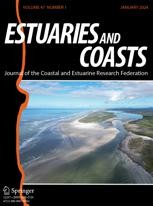 CERF is a multidisciplinary organization of individuals who study and manage the structure and functions of estuaries and the effects of human activities on these fragile environments. Members of the Federation include academic researchers, public sector managers, teachers, consultants, students and others who are interested in estuaries. The Federation was created in 1971, when the members of two older, regionally-based estuarine research societies (AERS and NEERS) decided that a national organization was needed to address estuarine and coastal issues more broadly. The regionally based Affiliate Societies now number seven and encompass all of the coastal regions that border the United States, Canada and Mexico.
CERF is a multidisciplinary organization of individuals who study and manage the structure and functions of estuaries and the effects of human activities on these fragile environments. Members of the Federation include academic researchers, public sector managers, teachers, consultants, students and others who are interested in estuaries. The Federation was created in 1971, when the members of two older, regionally-based estuarine research societies (AERS and NEERS) decided that a national organization was needed to address estuarine and coastal issues more broadly. The regionally based Affiliate Societies now number seven and encompass all of the coastal regions that border the United States, Canada and Mexico.
European Water Resources Association (EWRA)
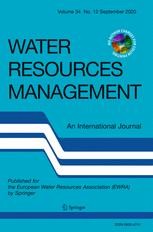 EWRA was initially established as ECOWARM (European Committee for Water Resources Management) and on September 14, 1992, its name was changed to European Water Resources Association. EWRA has been constituted as an international non-profit association aiming at enhancing cooperation and exchanges in research and application in the field of water resources. The main aims of EWRA are to promote research and application of scientific knowledge on water resources to practical engineering activities, to promote the exchange of scientific knowledge in the field of water resources between European scientists and engineers, and to contribute to the dissemination of results of scientific and technical advances by European specialists in the field to the other regions in the world.
EWRA was initially established as ECOWARM (European Committee for Water Resources Management) and on September 14, 1992, its name was changed to European Water Resources Association. EWRA has been constituted as an international non-profit association aiming at enhancing cooperation and exchanges in research and application in the field of water resources. The main aims of EWRA are to promote research and application of scientific knowledge on water resources to practical engineering activities, to promote the exchange of scientific knowledge in the field of water resources between European scientists and engineers, and to contribute to the dissemination of results of scientific and technical advances by European specialists in the field to the other regions in the world.
Global Water System Project (GWSP)
GWSP is led by a Scientific Steering Committee consisting of representatives from the four Global Environmental Change Programs (DIVERSITAS, IGBP, IHDP, and WCRP) as well as from the respective scientific community and seeks to answer the fundamental and multi-faceted question: How are humans changing the global water cycle, the associated biogeochemical cycles, and the biological components of the global water system and what are the social feedbacks arising from these changes?
International Association of Hydrogeologists (IAH)
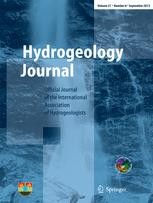 IAH is a scientific and educational charitable organization for scientists, engineers, water managers and other professionals working in the fields of groundwater resource planning, management and protection and aims to be a leading international society for the science and practice of hydrogeology and to be a globally recognized information source and facilitator for the transfer of groundwater knowledge. IAH also promotes the protection of aquifers against pollution, the improvement of aquifer storage and the management of groundwater resources to assure the sustainability of groundwater-dependent ecosystems.
IAH is a scientific and educational charitable organization for scientists, engineers, water managers and other professionals working in the fields of groundwater resource planning, management and protection and aims to be a leading international society for the science and practice of hydrogeology and to be a globally recognized information source and facilitator for the transfer of groundwater knowledge. IAH also promotes the protection of aquifers against pollution, the improvement of aquifer storage and the management of groundwater resources to assure the sustainability of groundwater-dependent ecosystems.
International Society for Porous Media (InterPore)
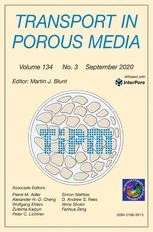 InterPore aims to advance and
InterPore aims to advance and disseminate knowledge for the understanding, description, and modeling of natural and industrial porous media systems. They act as a platform for researchers active in modeling flow and transport in complex porous media and aim to provide an environment in which researchers in the various industrial and natural systems can be made aware of each other's activities and exchange ideas. InterPore has established a strategic alliance with the journal Transport in Porous Media which is the oldest journal dedicated to porous media processes.
International Society of Food and Environmental Virology (ISFEV)
 ISFEV aims to encourage research and
ISFEV aims to encourage research and knowledge exchange to improve the understanding of and prevent diseases associated with, viruses transmitted via the environment and food and link researchers from academia with actors from industry and policy decision makers, to promote research in the field, and to cooperatively meet the ongoing challenges of Food and Environmental Virology.
International Society of Paddy and Water Environment Engineering (PAWEES)
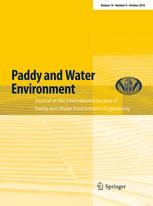 The mission of PAWEES is to dedicate to the advancement of science and technology of paddy & water environmental disciplines in order to improve and rationalize sustainable paddy farming systems while protecting nature and environment, giving special attention to harmonization of nature, society and humans. PAWEES was officially inaugurated on in 2003 under the full support from three regional agricultural engineering societies of Japan (JSIDRE), Taiwan (TSAE) and Korea (KSAE).
The mission of PAWEES is to dedicate to the advancement of science and technology of paddy & water environmental disciplines in order to improve and rationalize sustainable paddy farming systems while protecting nature and environment, giving special attention to harmonization of nature, society and humans. PAWEES was officially inaugurated on in 2003 under the full support from three regional agricultural engineering societies of Japan (JSIDRE), Taiwan (TSAE) and Korea (KSAE).
International Water History Association (IWHA)
 The International Water History Association aims to encourage, promote, and foster historical understanding of, and research in, the relationship between water and humankind. IWHA fosters a stronger relationship between those engaged in water history and water administrators, engineers, scientists, planners and other practitioners. Creating public awareness of the role of water in world history and to promote public participation in resolving water resource issues is a main activity.
The International Water History Association aims to encourage, promote, and foster historical understanding of, and research in, the relationship between water and humankind. IWHA fosters a stronger relationship between those engaged in water history and water administrators, engineers, scientists, planners and other practitioners. Creating public awareness of the role of water in world history and to promote public participation in resolving water resource issues is a main activity.
King Abdulaziz City for Science and Technology (KACST)
 KACST in Riyadh, Saudi Arabia, is an organization established in 1977 as the Saudi Arabian National Center for Science & Technology (SANCST); in 1985, it was renamed King Abdulaziz City for Science and Technology. KACST is an independent scientific organization administratively reporting to the Prime Minister. KACST is both the Saudi Arabian national science agency and its national laboratories. The science agency function involves science and technology policy making, data collection, funding of external research, and services such as the patent office.
KACST in Riyadh, Saudi Arabia, is an organization established in 1977 as the Saudi Arabian National Center for Science & Technology (SANCST); in 1985, it was renamed King Abdulaziz City for Science and Technology. KACST is an independent scientific organization administratively reporting to the Prime Minister. KACST is both the Saudi Arabian national science agency and its national laboratories. The science agency function involves science and technology policy making, data collection, funding of external research, and services such as the patent office.
Society for Environmental Geochemistry and Health (SEGH)
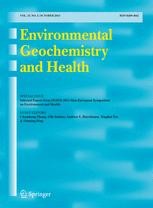 SEGH was established in 1971 to provide a forum for scientists from various disciplines to work together in understanding the interaction between the geochemical environment and the health of plants, animals, and humans. SEGH recognizes the importance of interdisciplinary research, representing expertise in a diverse range of scientific fields, such as biology, engineering, geology, hydrology, epidemiology, chemistry, medicine, nutrition, and toxicology. SEGH members come from a variety of backgrounds within the academic, regulatory, and industrial communities, thus providing a representative perspective on current issues and concerns.
SEGH was established in 1971 to provide a forum for scientists from various disciplines to work together in understanding the interaction between the geochemical environment and the health of plants, animals, and humans. SEGH recognizes the importance of interdisciplinary research, representing expertise in a diverse range of scientific fields, such as biology, engineering, geology, hydrology, epidemiology, chemistry, medicine, nutrition, and toxicology. SEGH members come from a variety of backgrounds within the academic, regulatory, and industrial communities, thus providing a representative perspective on current issues and concerns.
